Code of Ethics The NDM puts the Code of Ethics at the heart of all police decision making This distinguishes the NDM from other decisionmaking models and recognises the need for all police decisions to be consistent with the principles and standards of behaviour set out in the Code Policing principles Section 10 of the Police Code of Ethics states that unethical or unprofessional behaviour on the part of a policing colleague should never be ignored 'irrespective of the person's rank, grade or role' (College of Policing, 14 15)10 rows The Code of Ethics will apply to more than 2,000 officers, police staff, contractors and

Our Code Of Ethics Vision And Values Nottinghamshire Police
What is the code of ethics for police officers
What is the code of ethics for police officers-For example, a Transparency International UK study on codes of conduct in defence ministries and armed forces recommends that any defence and security sector ethics system include (11) a statement of values including such values as integrity, honesty, and diligence CODES OF ETHICS FOR THE POLICE Codes of Ethics"practice requiring improvement" means underperformance or conduct not amounting to misconduct or gross misconduct, which falls short of the expectations of the public and the police
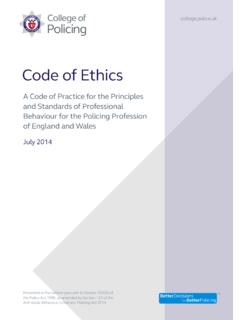



Code Of Ethics College Of Policing Code Of Ethics College Of Policing Pdf Pdf4pro
Ethics and Policing in the 21 st Century "The mission of policing can safely be entrusted only to those who grasp what is morally important and who respect integrity Without this kind of personal character in police, no set of codes, rules, or laws can safeguard that mission from the ravages of police misconductArticle 1 European Code of Police Ethics) 12 Police officers shall, as far as is practicable, carry out their functions in cooperation with, and with the aim of securing the support of, the local community (Sourced from Section 32(5) Police (Northern Ireland) Act 00) 13Identify experimental studies that have specifically examined the impact of codes of ethics on professional conduct This small scale and narrowly focused review was carried out over a short timescale to inform the development and implementation of the Code of Ethics for the policing profession of England and Wales
Law Enforcement Code of Ethics The IACP adopted the Law Enforcement Code of Ethics at the 64th Annual IACP Conference and Exposition in October 1957 The Code of Ethics stands as a preface to the mission and commitment law enforcement agencies make to the public they serve Law Enforcement Code of EthicsCODE OF PRACTICE FOR THE DETENTION, TREATMENT AND QUESTIONING OF PERSONS BY POLICE OFFICERS Commencement Transitional Arrangements This Code applies to people in police detention after 0000 on 31 July 18, notwithstanding that their period of detention may have commenced before that timeCode of Conduct for Police Staff Page 2 of 5 Policy Statement Summary West Yorkshire Police (WYP) Code of Conduct for police staff is provided to set out the standard that the Force expects from all police staff employees The policy adheres to and supports the objectives of the Code of Ethics
The Code of Ethics has been produced by the College of Policing, it is the official code of practice for the police service It applies to everyone in policing this includes officers, police staff, contractors and volunteersAvoid being improperly beholden to any person or institution;This code was established by the Peace Officer's Research Association of California in 1956 and since then has made its way throughout the country to Police departments and its officers Many department mission statement have been derived from the very words that appear on the code of ethics This code of ethics is as follows Law enforcement



Q Tbn And9gcqjqqzew87m0n4qbrmwjj9caa3s0ham3b0qtrttddw Usqp Cau




Home
Standard of conduct and perform their duties in a nondiscriminatory, efficient, courteous, respectful, and ethical manner at all times Further, police powers shall Title Metropolitan Police Department Sworn Law Enforcement Officer Code of Ethics Topic Series Number RAR 1 36 Effective Date Replaces Code A 15 Exercise by police officers of statutory powers to search a person or a vehicle without first making an arrest and the need for a police A new Code setting out policing principles and standards of professional behaviour for members of the policing profession raises questions around how incidents of minor misconduct will be dealt with On 15 July 14 the College of Policing issued a Code of Ethics ('the Code') under section 39A of the Police Act 1996
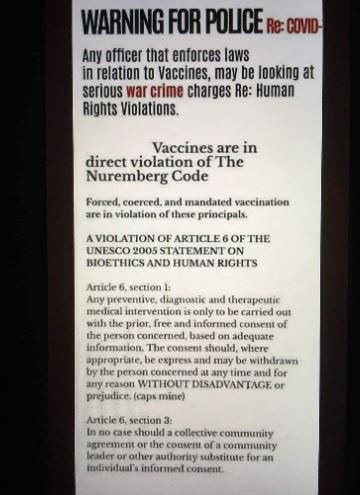



Do Vaccinations Violate Human Rights Under The Nuremberg Code




Our Code Of Ethics Vision And Values Nottinghamshire Police
By the Code of Ethics Covert policing 14 The police service operates on the basis of openness and transparency This is essential to maintaining and enhancing a positive relationship between the policing profession and the community 15 To achieve legitimate policing aims, it is sometimes necessary to use covert tactics This is recognisedThe Code of Ethics for the police service in England and Wales has been in place for a number of years and continues to provide a framework that ensures policing isCode of Conduct for Law Enforcement Officials;




W Yorks Police Firearms Licensing Dept In Breach Of Policing Code Of Ethics Raptor Persecution Uk
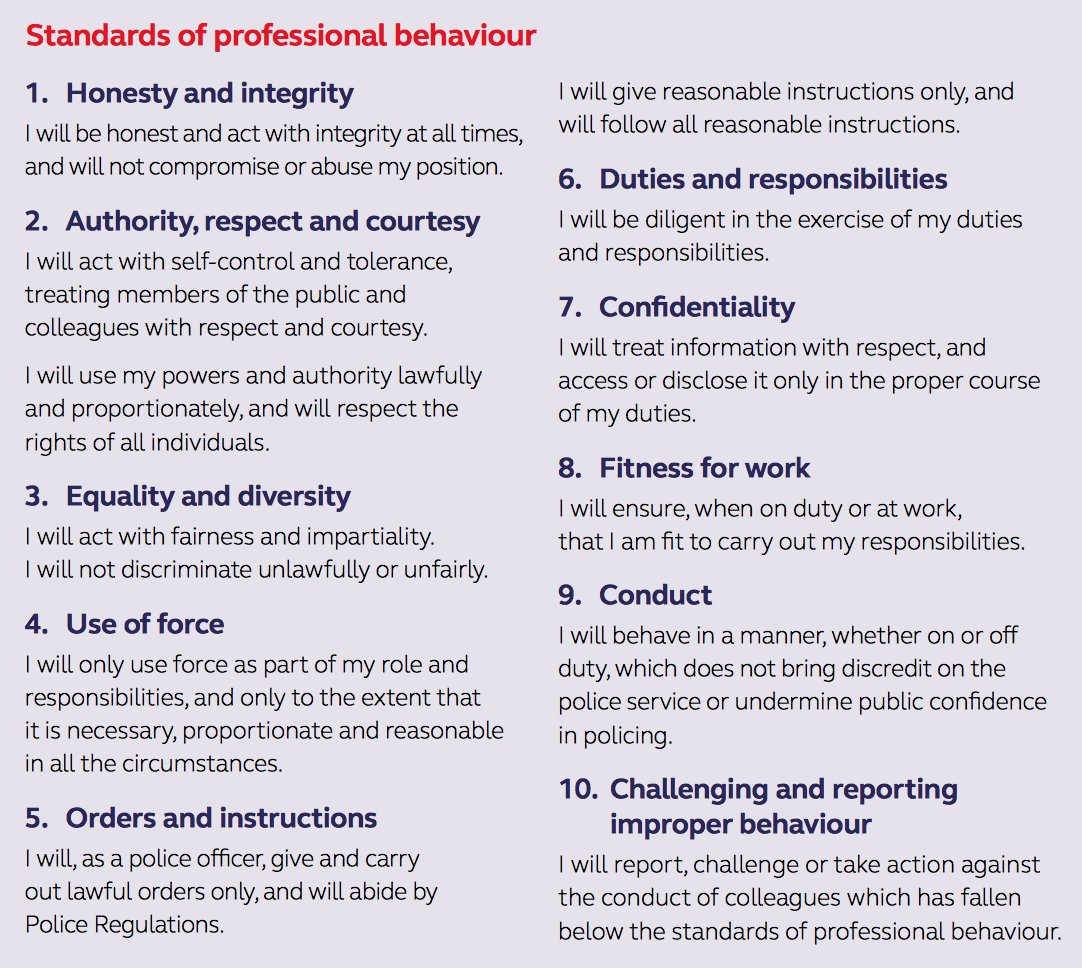



Oliver Scott Curry Code Of Ethics For The Policing Profession Of England And Wales Ethicalatlas T Co D2oxkbaaqc
The Code of Ethics is a national code of practice, which defines core policing values and the standards of behaviour for everyone who works in policing We aim to provide the very best quality of service to the public whilst delivering our strategy, which includes targeting offenders, preventing, reducing and detecting crime, serving our victims and providing community based17 CITY OF LONDON POLICE POLICING PLAN 5 National Police Code of Ethics Our values, which encompass the Code's nine principles, underpin everything we do Adhering to them enables us to demonstrate not only our commitment to the national Police Code of Ethics, but also to deliver it To support the Police Code of Ethics, we will –Code of Ethics Durham Constabulary is committed to providing an excellent policing service it can be proud of We will continually strive to act with integrity, fairness and respect to ensure that the confidence and support of those we serve is protected as our most valued asset
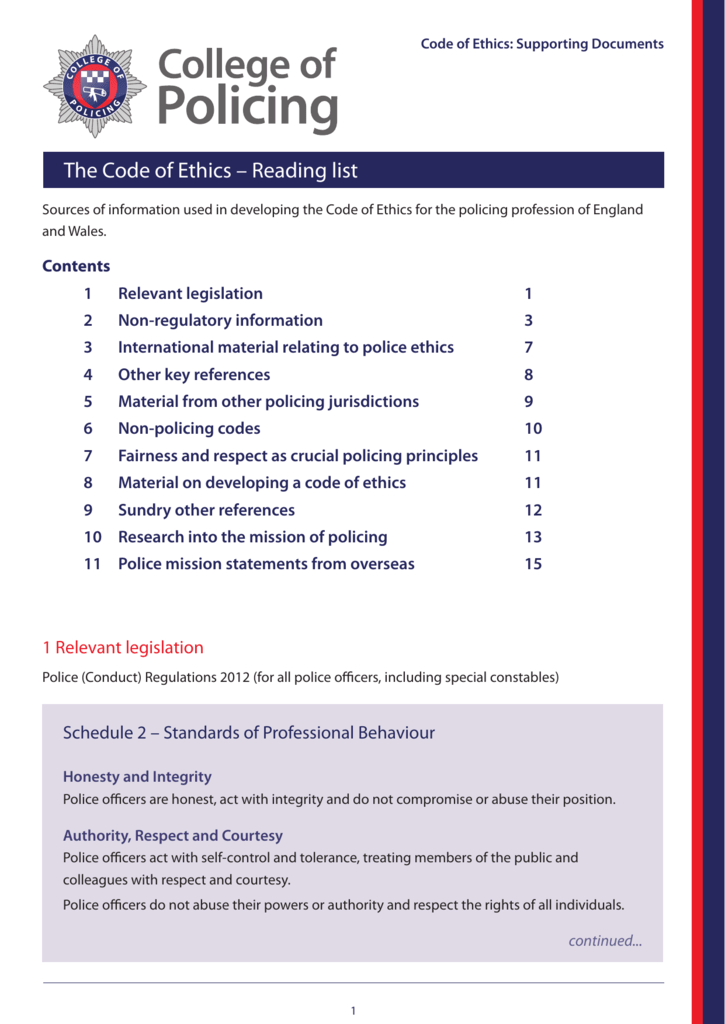



The Code Of Ethics Reading List




Police Face New Ethical Dilemma In Increasingly Digital World Law The Guardian
Code of Ethics The Code of Ethics applies to all officers and staff in England and Wales, in every force, in every role, at every level The Code lays out the principles and standards of behaviour that everyone who works in policing should aspire to It is intended to be used on a daytoday basis to guide behaviour and decisionmaking and has been written "by" policingPolice Act 1996 (as amended by section 124 of the AntiSocial Behaviour, Crime and Policing Act 14) 3 As a code of practice, the legal status of the Code of Ethics (a) applies to the police forces maintained for the police areas of England and Wales as defined in section 1 of the PoliceThe Code of Ethics is a first for everyone who works in policing in England and Wales It sets out the principles and standards of behaviour we expect to see from police professionals It applies to every individual who works in policing, whether a warranted ocer, member of police staff, volunteer or someone contracted to work in a police force




Legal And Ethical Main Oral History Society




The Only Way Is Ethics Rank Success Blog
Code of Ethics West Midlands Police is committed to ensuring that the Code of Ethics is not simply another piece of paper, poster or laminate, but is at the heart of every policy, procedure, decision and action in policing The Code of Ethics is about selfawareness, ensuring that everyone in policing feels able to always doIncorporated in the IACP's rules is a code of ethics outlining standards of professional conduct The first five sections of the code of ethics are the basic tenets that all IACP members should uphold Sections six through fourteen outline ethical standards concerning enforcement proceduresThe College of Policing's Code of Ethics lays out standards of behaviour every police employee should aspire to It's there to help staff do the right thing and have confidence to challenge colleagues if necessary, irrespective of rank, role or position



Www Runnymedetrust Org Uploads Race and policing v5 Pdf
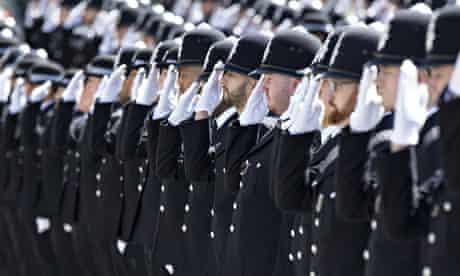



Police Chiefs End Clampdown On Whistleblowers To The Media Police The Guardian
The Code of Ethics – Summary OFFICIAL 1 The College of Policing developed the Code of Ethics on behalf of every member of the policing profession of England and Wales 2 The work was carried out by the College's Integrity Programme in association with the national policing lead for Ethics and the national policing lead for ProfessionalAnd discharge their duties with integrity Fairness and impartiality 2It compares responses from police officers in UK three forces, looking at potentially corrupt behaviours described in a series of scenarios The discussion includes why some types of misdemeanour seem more likely to be reported and the potential effects of a newly introduced formal Code of Ethics
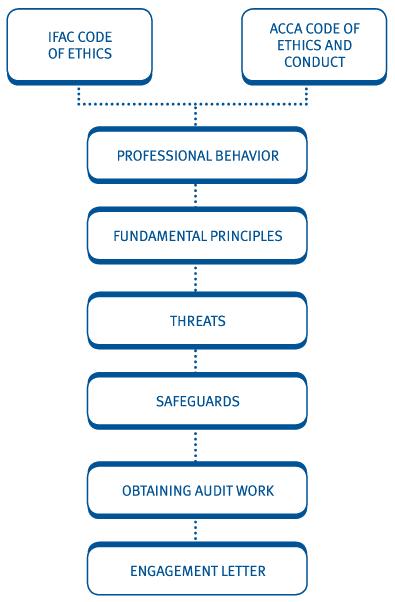



Chapter 4 Ethics And Acceptance Of Appointment
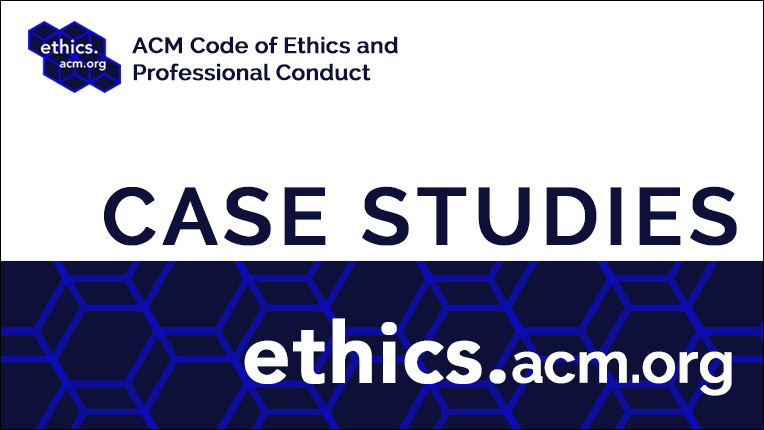



Code Of Ethics Case Studies
The introduction of a new Police Code of Ethics, while good for media coverage, changes nothing If you have suffered as a result of police misconduct and want help to sue the police, contact me using the online form below, on 0151 933 5525, orOf all men to liberty, equality and justice (The Police Code of Ethics, 1992 IACP version) In England, Sir Robert Peel in 19 created what is often referred to as the first professional police force This police force obtained its authority from the commonlaw legal obligation andThe code of ethics is a code of practice for the principles and standards of professional behaviour for the policing profession of England and Wales The standards of professional behaviour that are expected of every member of our workforce are contained in the Code of Ethics
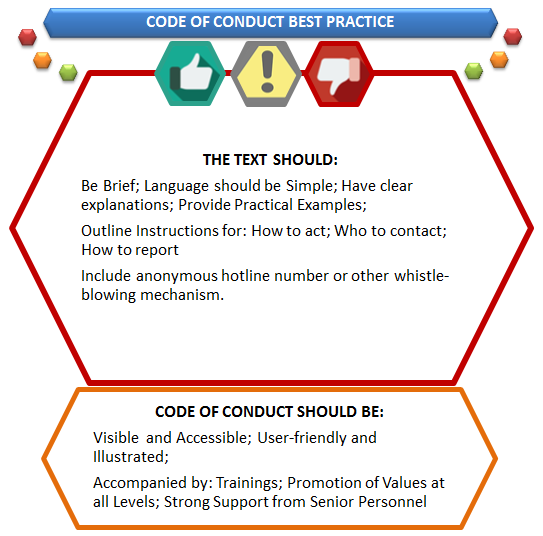



Codes Of Conduct Security Sector Integrity



Www Justiceinspectorates Gov Uk Hmicfrs Wp Content Uploads Stop And Search Powers 2 Pdf
The Code of Ethics is a first for everyone who works in policing in England and Wales It sets out the principles and standards of behaviour we expect to see from police professionals It applies to every individual who works in policing, whether a warranted ocer, member of police staff, volunteer or someone contracted to work in a police force Police are to be forced to obey a new code of ethics following a string of public rows including the "Plebgate" row The code will be similar to the Hippocratic Oath taken by doctors and is aimedMPS Information Code of Conduct An Information Code of Conduct applicable for all MPS personnel, members of the wider police family and certain partners It details the personal responsibility and duty of confidentiality owed by all staff to the Commissioner of Police of the Metropolis and MOPAC



Www Cleveland Police Uk Syssiteassets Media Downloads Force Content Cleveland Careers Officers Officer Application Guidance Pdf




Introduction The Code Of Ethics The Policing Principles
The Code of Ethics was produced by the College of Policing in 14 in its role as the professional body for policing It sets and defines the exemplary standards of behaviour for everyone who works in policing It is a supportive, positive, everyday decisionmaking framework and is a constant reinforcement of the values and standards that policing is proud ofSCHEDULE 1 CODE OF CONDUCT Honesty and integrity 1 It is of paramount importance that the public has faith in the honesty and integrity of police officers Officers should therefore beEthics, equality and inclusion We strongly believe in the National Police Chiefs' Council (NPCC) guidance that supports us to ensure that our behaviour, actions and decisions will always be in support of the public interest We value public trust and confidence in policing




Code Of Ethics Dorset Police
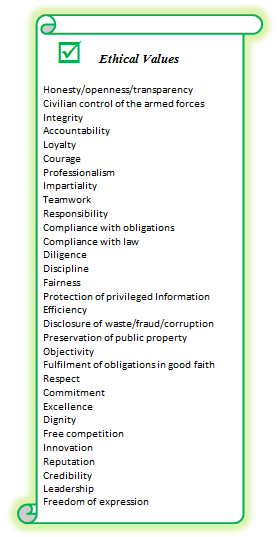



Codes Of Conduct Security Sector Integrity
1 It is of paramount importance that the public has faith in the honesty and integrity of police officers Officers should therefore be open and truthful in their dealings;11 The standards of professional behaviour, as reflected in the Code of Ethics, are a statement of the expectations that the police and the public have of how police officers should behave They are not intended to describe every situation but rather to set a framework which everyone can easily understand They enable everybody to know what type of conduct by a police officer isAppendix C The College of Policing's Code of Ethics 115 Appendix D APCC Ethical Good Practice Framework 117 Appendix E Ethics Committees 1 Appendix F Police and Crime Panels 124 Appendix G Police and Crime Panel best practice 128 Appendix H Transparency desk research 14 130 Appendix I Methodology 134




The Peace Model Of Investigation Interviews
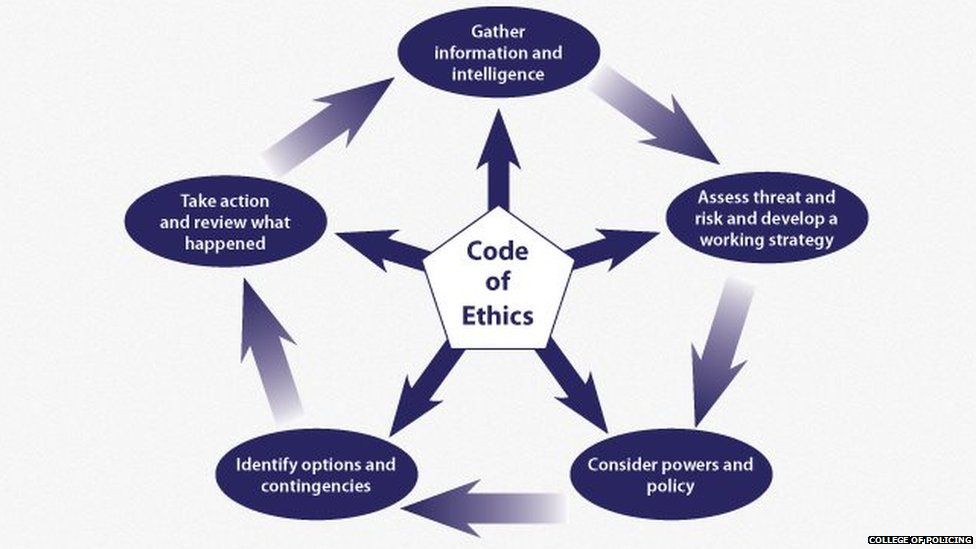



When Can The Police Use A Taser c News
Integrity and transparency Ensuring that the people who work for the police uphold the values of the service, strive to do the right thing in all situations and have the public's confidenceMuch, if not all, of the work of the UK Police circles around the document maintained by the College of Policing and called Code of Ethics (of the UK Police) This fundamental document of 13 pages lists 9 principles of work of the UK Police and 10 Professional StandardsThe Code of Ethics was created by the College of Policing, the professional body for police, and laid in Parliament in July 14This video explains what you



Www Jobtrain Co Uk Merseysidepolice Previewdocument Aspx Docid Guid C21a9fae39f1c04da484 Jobid 6365




Undercover Police Banned From Having Sex With The People They Are Spying On Under New Code Of Ethics Daily Mail Online
Essex Police officers and staff are additionally guided by the Police Code of Ethics Supported by the Police, Fire and Crime Panel's Ethics and Integrity SubCommittee, the Commissioner monitors how well both services are delivering against these standards and, working with the Chief Constable and Chief Fire Officer, uses this to help drive




Code Of Ethics Uk




The Ethics Of Future Policing In Europe Prof Ppt Video Online Download




Npcc Questions And Answers On Conducted Energy Devices




Code Of Ethics Isrrt
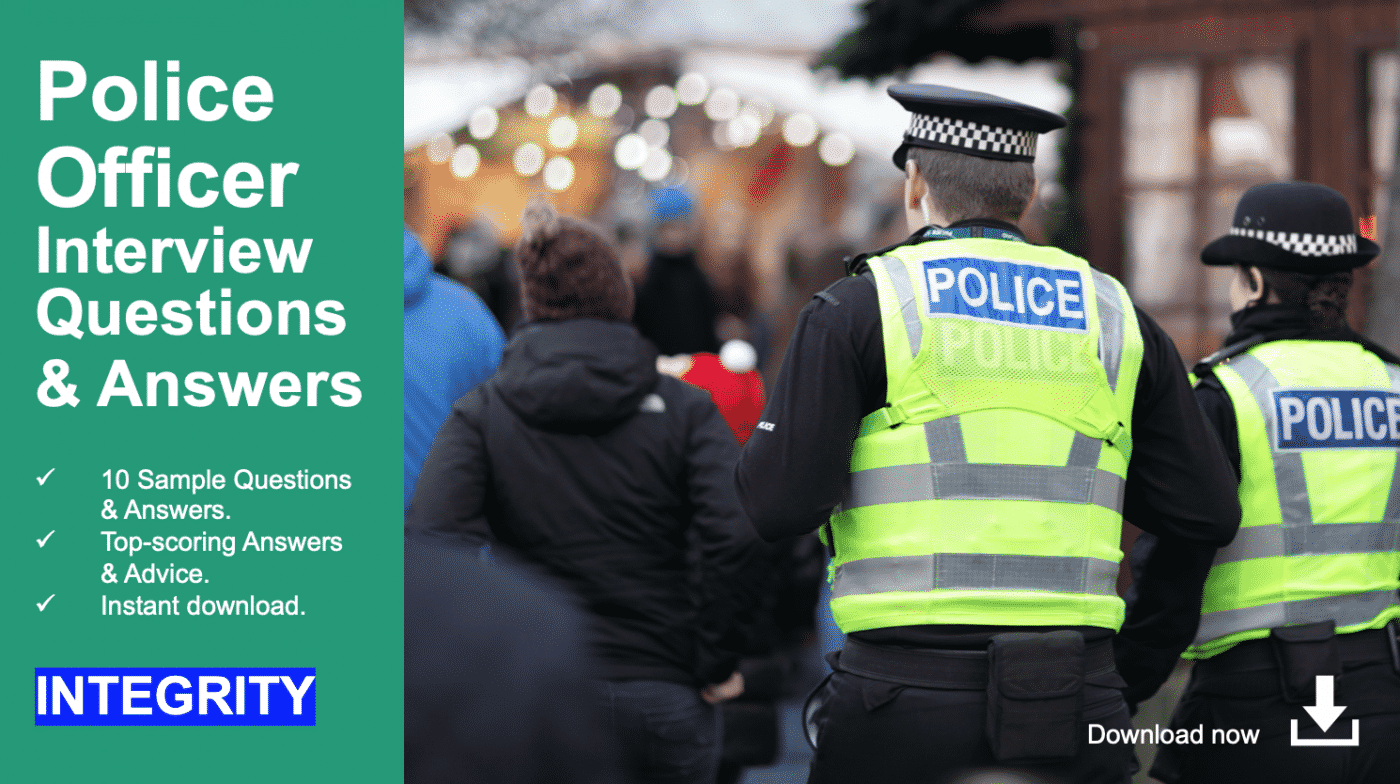



Police Officer Competencies Interview Questions Answers
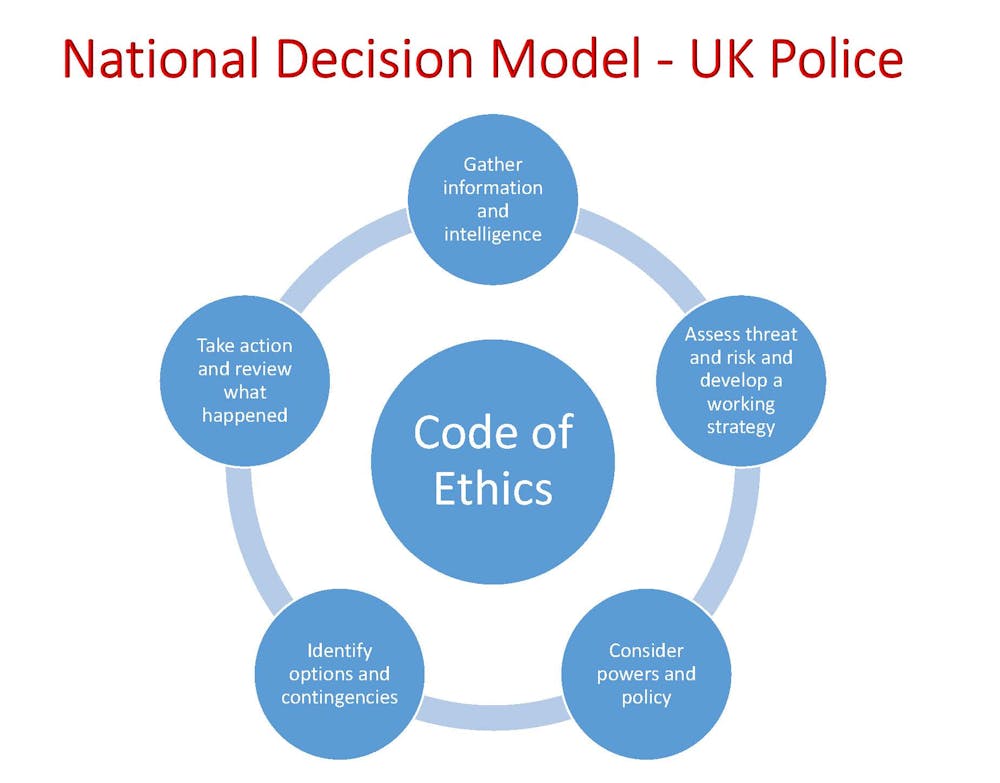



Police Pursuits When Does The End Justify The Means




Code Of Ethics Uk




Code Of Ethics College Of Policing Code Of Ethics College Of Policing Pdf Pdf4pro
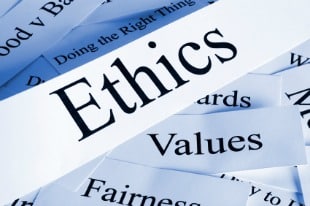



Ethics In Counselling Pdf Top 5 Counseling Assignment Tips
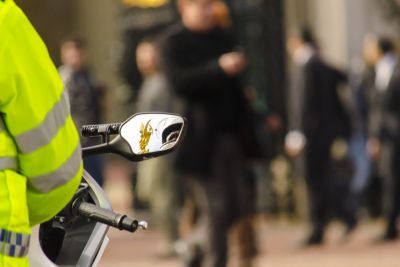



3 02 Challenges And Possibilities Of The Implementation Of The Policing Code Of Ethics Centre For Policing Research And Learning




The Police Should Not Need A Code Of Ethics The Times




Code Of Ethics Youtube
.jpg)



Leighton Cooperates With Police On Possible Ethics Breach
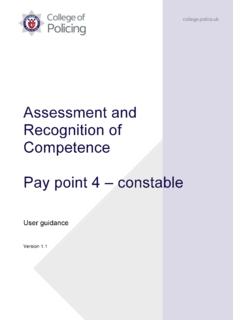



Code Of Ethics College Of Policing Code Of Ethics College Of Policing Pdf Pdf4pro



Law On Police Use Of Force In The United Kingdom The Law On Police Use Of Force




Why Did The Boys In Blue Turn Into The Boys In Black Part 3




Rude Police Officers To Be Formally Punished Under New Rules The Independent The Independent



2




Oversight Of Biohacking When The Stakes Are High Voices In Bioethics



1




New Materials Code Of Ethics Police Assessment Centre Training



Full Article Interpreted Investigative Interviews Under The Peace Interview Model Police Interviewers Perceptions Of Challenges And Suggested Solutions
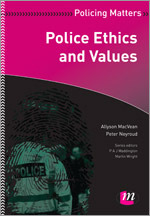



Police Ethics And Values Sage Publications Inc




Zlok09i3uwhgnm
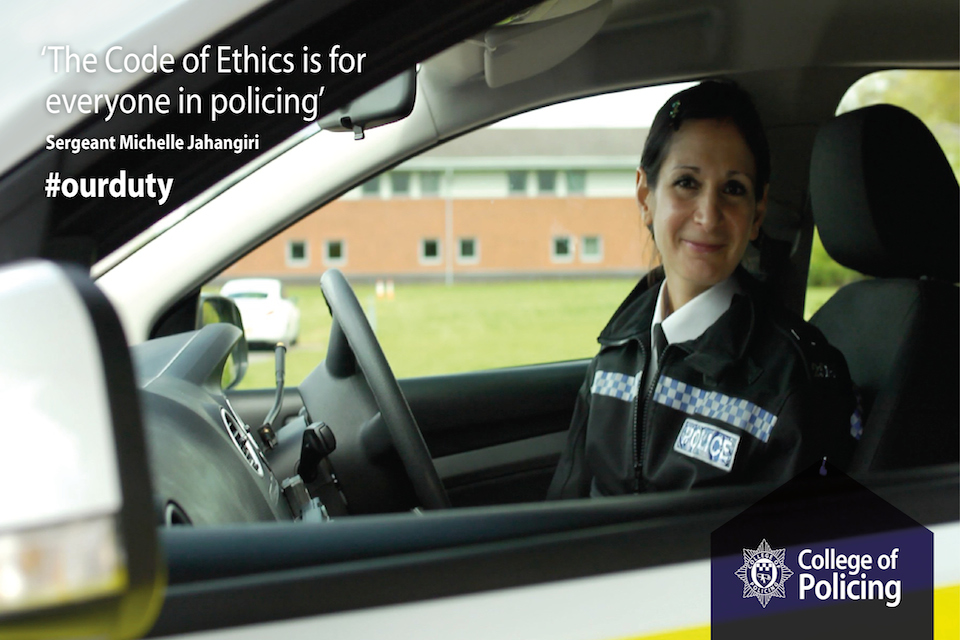



Code Of Ethics Launched Gov Uk
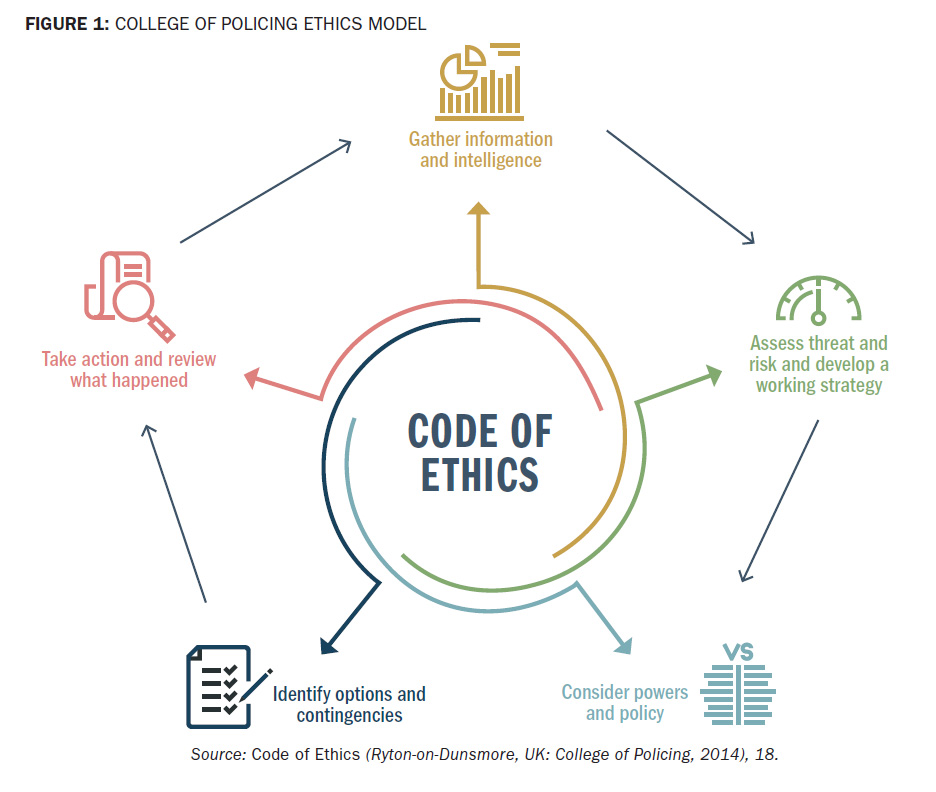



Figure1college Of Policing Ethics Model Police Chief Magazine




Code Of Ethics Uk
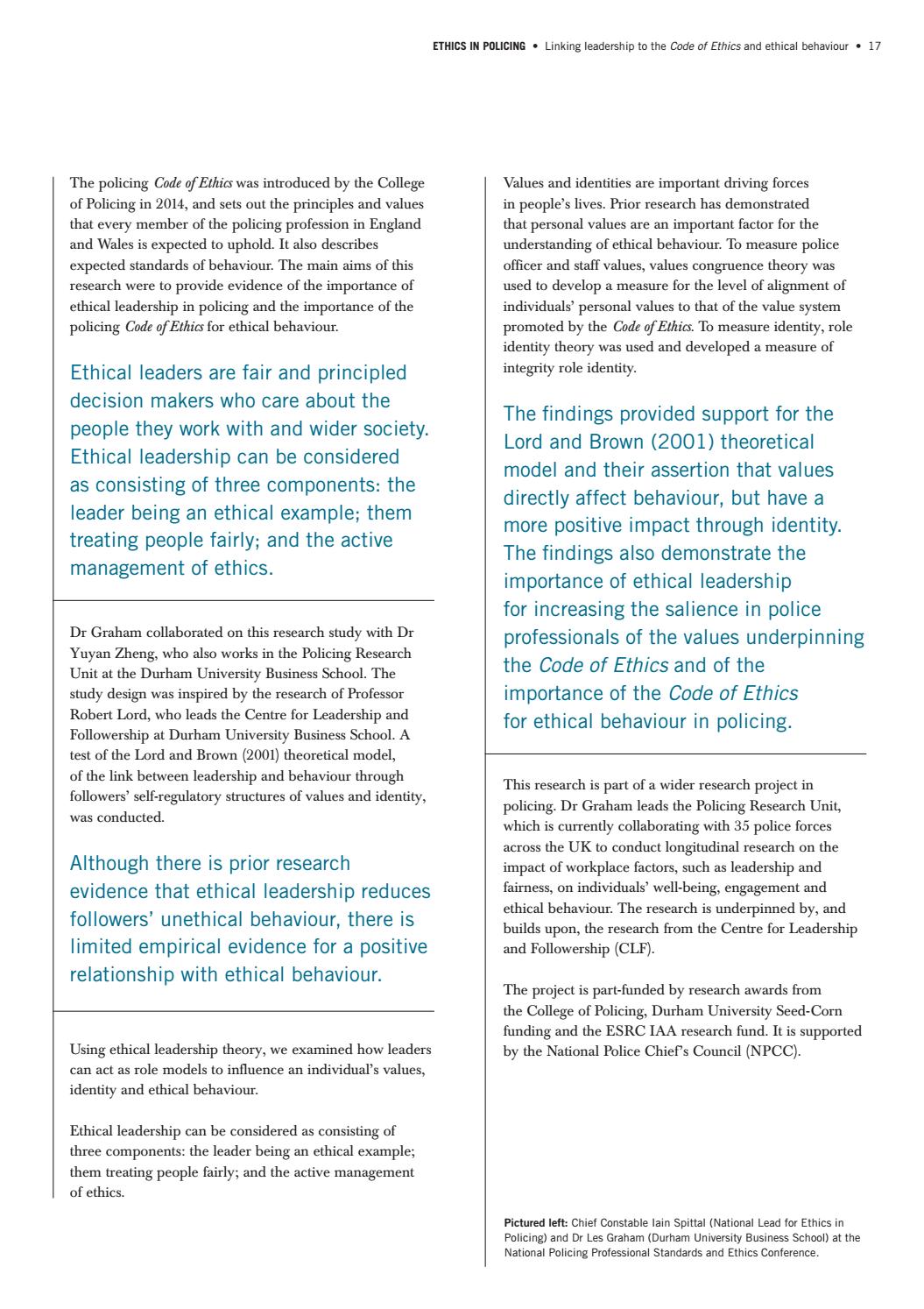



Impact Magazine Issue 3 By Durham University Business School Issuu




Ch 5 Codes Of Ethics Flashcards Quizlet



Http Nrl Northumbria Ac Uk 272 1 Final p and s document nrl Pdf
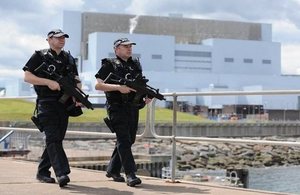



Code Of Ethics Launched Gov Uk




Policing And Ethics Panels Are They Really Working Police Hour
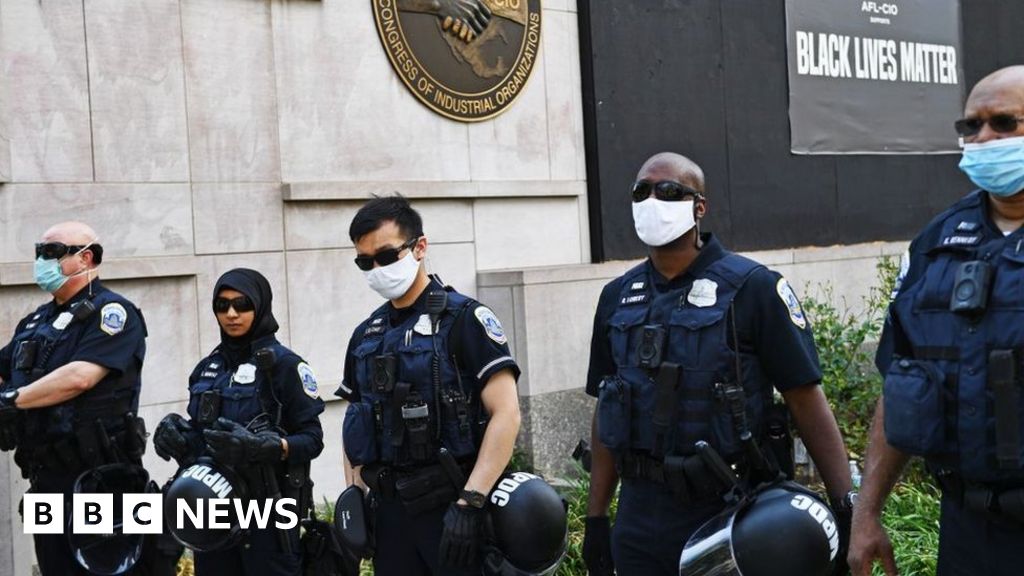



George Floyd Death What Us Police Officers Think Of Protests c News
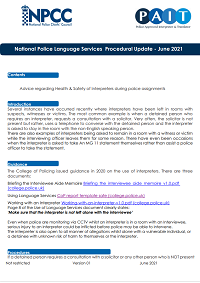



Guidance For Public Service Interpreters Police Ciol Chartered Institute Of Linguists




Pdf Police Ethics And Integrity Keeping The Blue Code Of Silence




Victims Code Of Practice Syp




The Child Victims Of The Uk S Encrochat House Raids Conflict Al Jazeera




What Next For Police Technology And Ethics Centre For Data Ethics And Innovation Blog




Police Ethics Free Essay Example
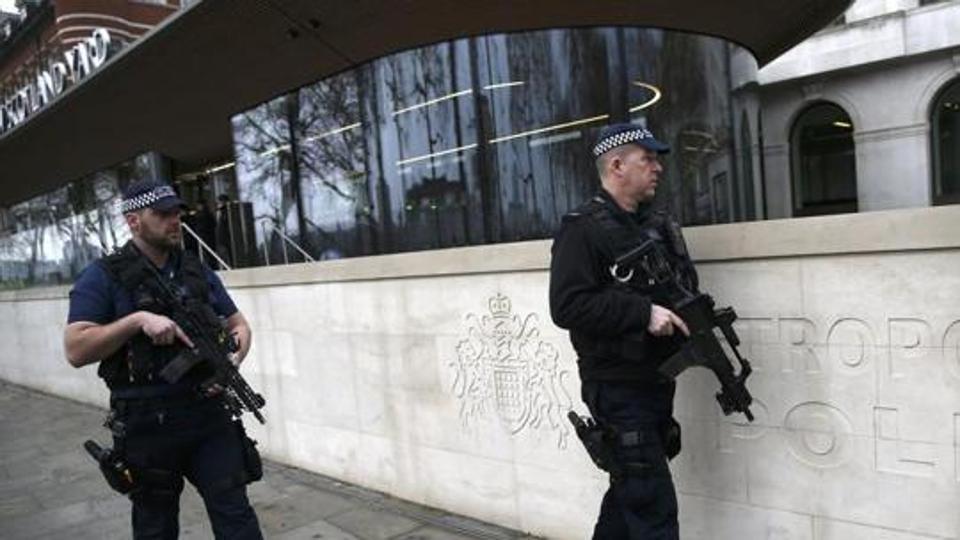



Uk Police To Get Stricter With Fines For Covid 19 Lockdown Breaches World News Hindustan Times



Www Durham Police Uk About Us Our Commitment Commitment Documents Code Of Ethics Durham Pdf




History Development Of Police Studocu




Covid 19 Pandemic Ethical Guidance For Social Workers Www Basw Co Uk




Ethics For Police Translators And Interpreters 1st Edition Sedat



Www Nipolicingboard Org Uk Psni Code Ethics



4 Impacts Of Proactive Policing On Crime And Disorder Proactive Policing Effects On Crime And Communities The National Academies Press



Assets Publishing Service Gov Uk Government Uploads System Uploads Attachment Data File Cspl Print Nc Pdf




The Code Of Ethics Of The Uk Police Explained appp Association Against Abuse Of Police Powers And Privileges



1




New Materials Code Of Ethics Police Assessment Centre Training



Www Northants Police Uk Syssiteassets Media Downloads Northamptonshire About Us Code Of Ethics Booklet Pdf




Line Of Duty Two Ex Anti Corruption Officers On How The Police Actually Catch Bent Coppers




Don T Be Drunk Or Have Sex On Duty New Guidelines For Police Ethics After Scandals Which Have Shaken Public Trust Daily Mail Online
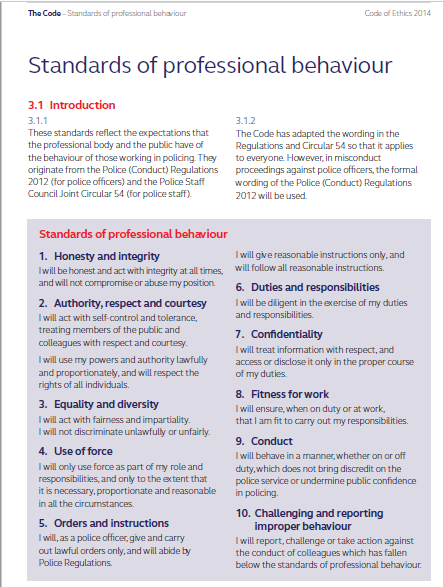



Complaint Against Lgbtpoliceuk Fair Cop




What Are We Looking For In A Police Officer North Yorkshire Police North Yorkshire Police




Oliver Scott Curry Code Of Ethics For The Policing Profession Of England And Wales Ethicalatlas T Co D2oxkbaaqc




Police Code Of Ethics For Members Of The Public Youtube
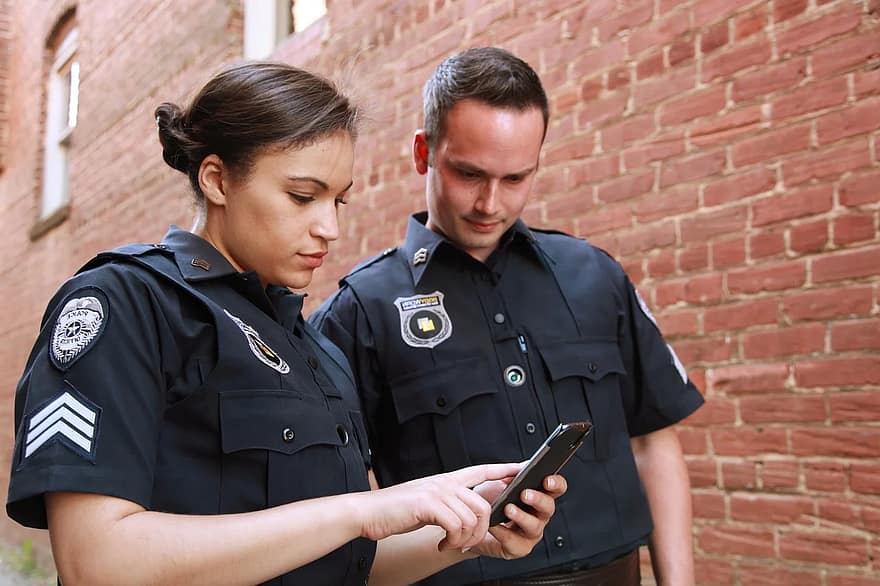



Is Over Policing The Future Development Of The Uk Law Enforcement Data Service Leds Privacy International




Icva Never A Bad Time To Remind Ourselves Of The Nolan 7 Principles Of Public Life Independent Custody Visitors Both Embody These Principles And Are Part Of Ensuring Accountability




Acro Criminal Records Office Join Us




Police Discipline The New Code Of Ethics And The Police Conduct Regulations 12 Corrupt Police



Paas S3 Broker Prod Lon 6453d964 1d1a 432a 9260 5e0ba7d2fc51 S3 Eu West 2 Amazonaws Com S3fs Public 21 02 College Of Policing Guidance On Professional Boundaries Pdf
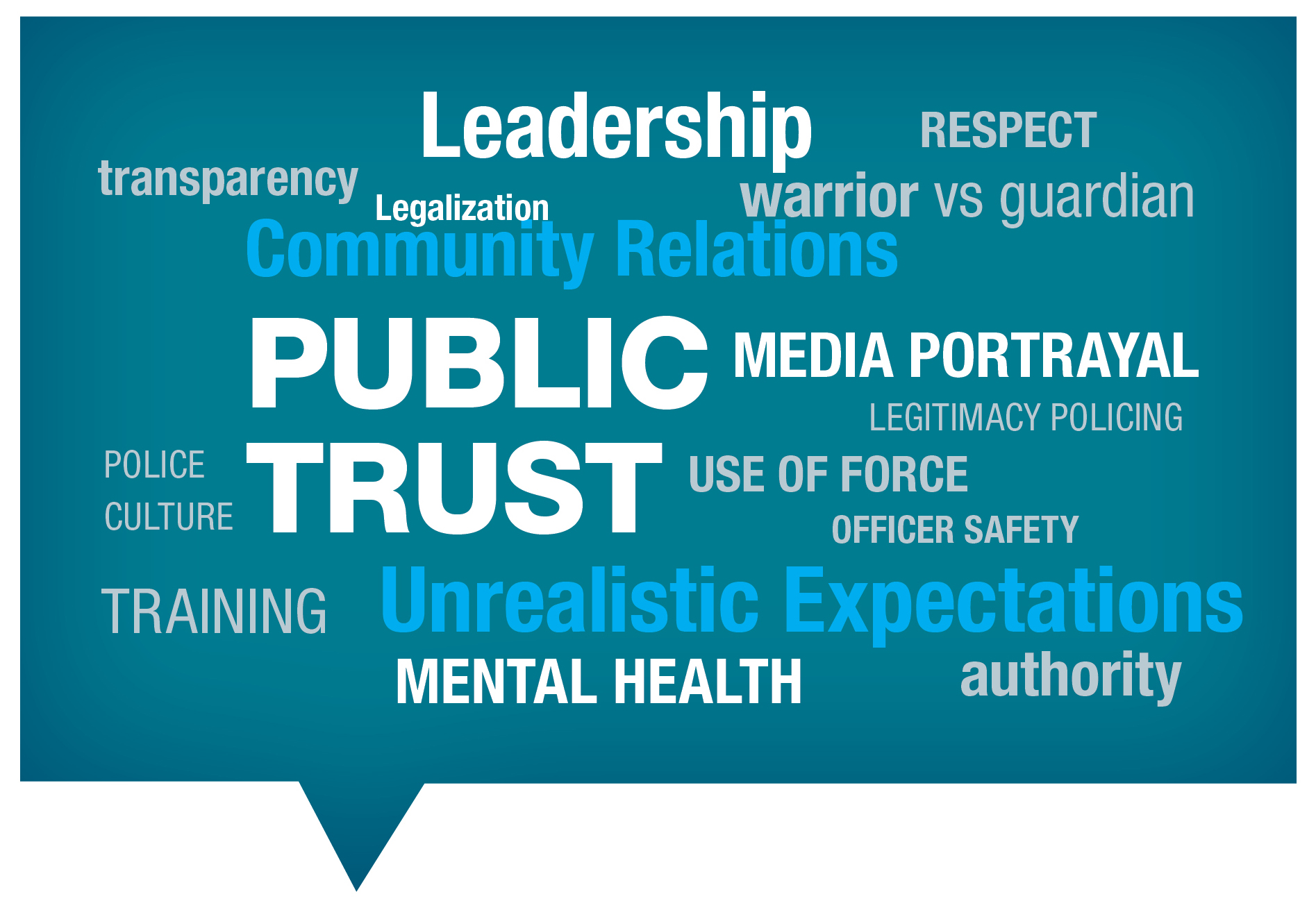



Teaching Ethics In The Training Academy A State Of The Art Approach Police Chief Magazine



Q Tbn And9gcs7id4bbwzsaj8mlpxs8yx Afvq9 Dpuli4adny9u54ltdfqt Usqp Cau



Technology And Police Operations National Police Foundation



2




Leveson Inquiry Wikipedia
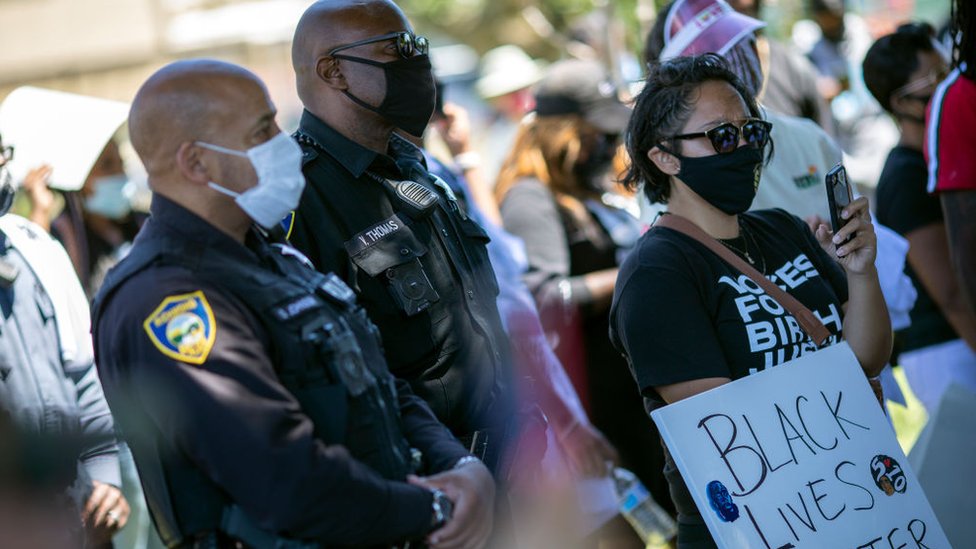



George Floyd Death What Us Police Officers Think Of Protests c News
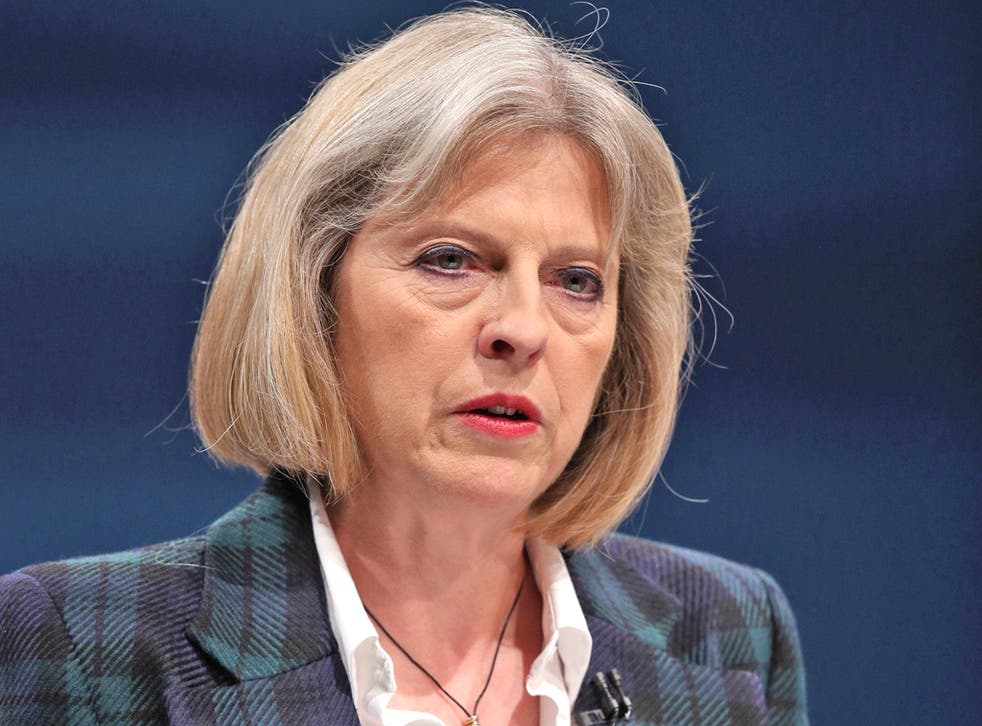



Theresa May Announces New Code Of Ethics For Police The Independent The Independent




Zlok09i3uwhgnm




Law Enforcement Code Of Ethics Police Motivation Police Code Ethics




Membership C College Of Policing Limited Agenda Membership Of The College Of Policing Progress To Date And Future Plans Frontline Champions Panel Ppt Download




Code Of Ethics




National Vpc Code Of Conduct Volunteer Police Cadets




Ethics College Of Policing



Assets Publishing Service Gov Uk Government Uploads System Uploads Attachment Data File Misconductperformattendancejuly14 Pdf




Competency And Values College Of Policing




Values Based Decisions The Compliance And Ethics Blog
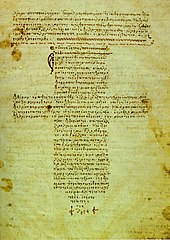



Medical Ethics Wikipedia




Pdf Measuring Multi Agency South Wales Police Corruption Implications Of Evidence From Within



0 件のコメント:
コメントを投稿